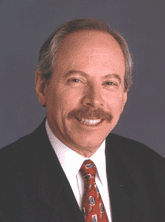
NIDA research has produced a tremendous amount of scientific knowledge about preventing drug abuse and treating addiction. However, this knowledge has not yet reached many American homes, schools, and communities. As a result, long-held mistaken beliefs about drug abuse continue to hold sway in many segments of our society. These prevailing myths about drug abuse harm those with drug-related problems, their families, and the health care professionals who work with them.
To address this situation, NIDA has taken a number of steps to bridge what I call the "great disconnect," the large gap between the scientific facts and the public's perceptions about drug abuse and addiction.In 1996, we organized and sponsored a broad range of meetings that have been fostering a continuous exchange of information between the Institute and professional and community audiences. These meetings include:
- National constituent conferences at which representatives of national organizations involved in the field of drug abuse prevention and treatment formulate recommendations that are helping NIDA shape new research initiatives and increase the dissemination of scientific information about drug abuse. (For more information on the Third Annual Constituent Conference held last November in Lansdowne, Virginia, see "Constituents Help Shape NIDA's Research Agenda.")
- National conferences that disseminate the latest research findings about effective prevention and treatment strategies to practitioners. For example, we held the National Conference on Drug Abuse Prevention Research in Washington, D.C., last September. (See "National Conference Showcases Effective Drug Abuse Prevention Programs.")
- Regional conferences that respond to important emerging drug abuse issues, such as the Regional Symposium on Methamphetamine Abuse, Treatment, and Prevention, which we held in December in California.
- Conferences held in conjunction with the annual meetings of other scientific organizations interested in drug abuse issues. These meetings stimulate new research and foster collaborations between NIDA researchers and scientists from these organizations. Last year, we sponsored the Conference on Drug Abuse (CODA) at the American Psychological Association Convention in Toronto and held several concurrent sessions on drug abuse-related neuroscience research at the annual meeting of the Society for Neuroscience in Washington, D.C.
- Special outreach activities to increase understanding of advances in drug abuse science and practice in the educational community. These activities include presentations I made on the biology of addiction at the University of Alaska in Anchorage, at county-wide public school meetings in Maryland and Virginia, and at this year's Brain Awareness Week events at the National Institutes of Health.
Drug abuse is a problem that affects every community in America. Therefore, last year we also launched a major initiative to increase the dissemination of science-based facts about drug abuse and addiction at the local level. This initiative consists of a series of Town Meetings to take research findings from the laboratory to local communities, where they can be applied toward preventing and treating drug abuse. At these Town Meetings, people who are on the front lines in the fight against drug abuse learn what research has shown about the true nature of addiction and how to use research findings to develop strategies to prevent and treat drug abuse and addiction. In addition, the meetings give community participants the opportunity to discuss with NIDA what additional research we could conduct to help them improve drug abuse prevention and treatment at the local level. (See "NIDA Goes to Town," p. 1.)
To date, we have held Town Meetings in Miami; Tampa, Florida; Columbus, Ohio; St. Louis; and Dallas. To ensure that community concerns were addressed at these meetings, we worked closely with local community anti drug coalitions,other service organizations, and universities to cosponsor the meetings;to determine the issues that the meetings would cover; and to inform their members, policy makers, and community residents interested in drug abuse issues about the meetings. As a result, 300 to 400 civic leaders, policymakers, public officials, drug abuse prevention and treatment professionals,and concerned citizens came together with prominent NIDA-funded scientific researchers at each of these meetings to share their special perspectives about drug abuse research and its application to prevention and treatment.
These NIDA Town Meetings have proven to be an effective vehicle for communicating what science has discovered about the nature of drug abuse and addiction and for increasing knowledge about effective strategies to prevent and treat these problems. These meetings also have been expanding the dissemination of the latest research findings to community leaders, practitioners, and parents and fostering ongoing exchanges between local drug abuse scientists and meeting participants. And they have been increasing our awareness and knowledge of local issues and needs as we plan NIDA's future drug abuse research initiatives.
This year, we will continue to take the latest scientific information about drug abuse and addiction from a research setting to the community by working with local organizations to sponsor at least three more Town Meetings. This will help ensure that researchers, practitioners, civic leaders,parents, and community members will continue to learn from each other and work together to develop, identify, and apply the most effective means of alleviating the social and public health problems of drug abuse and addiction in our Nation's communities.
